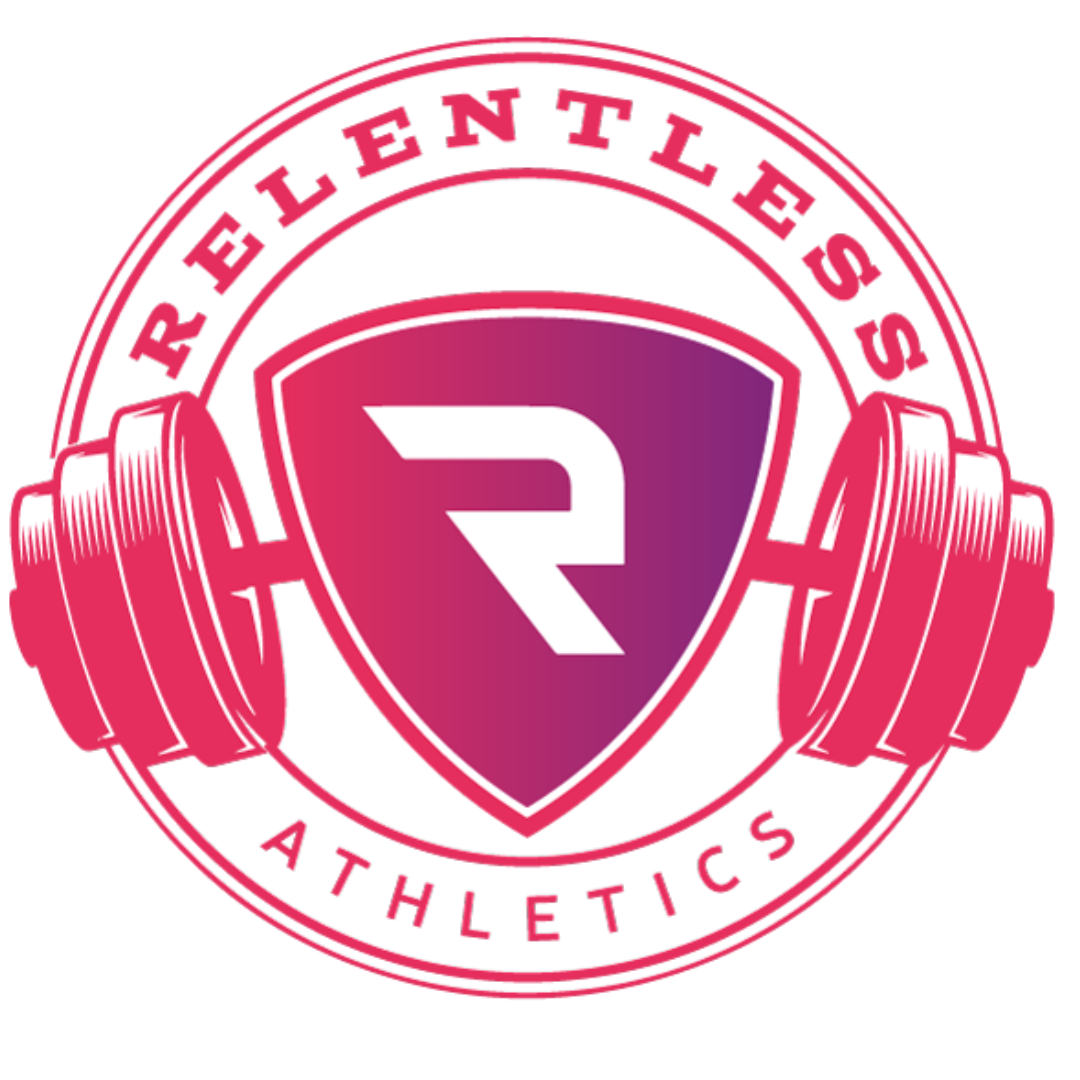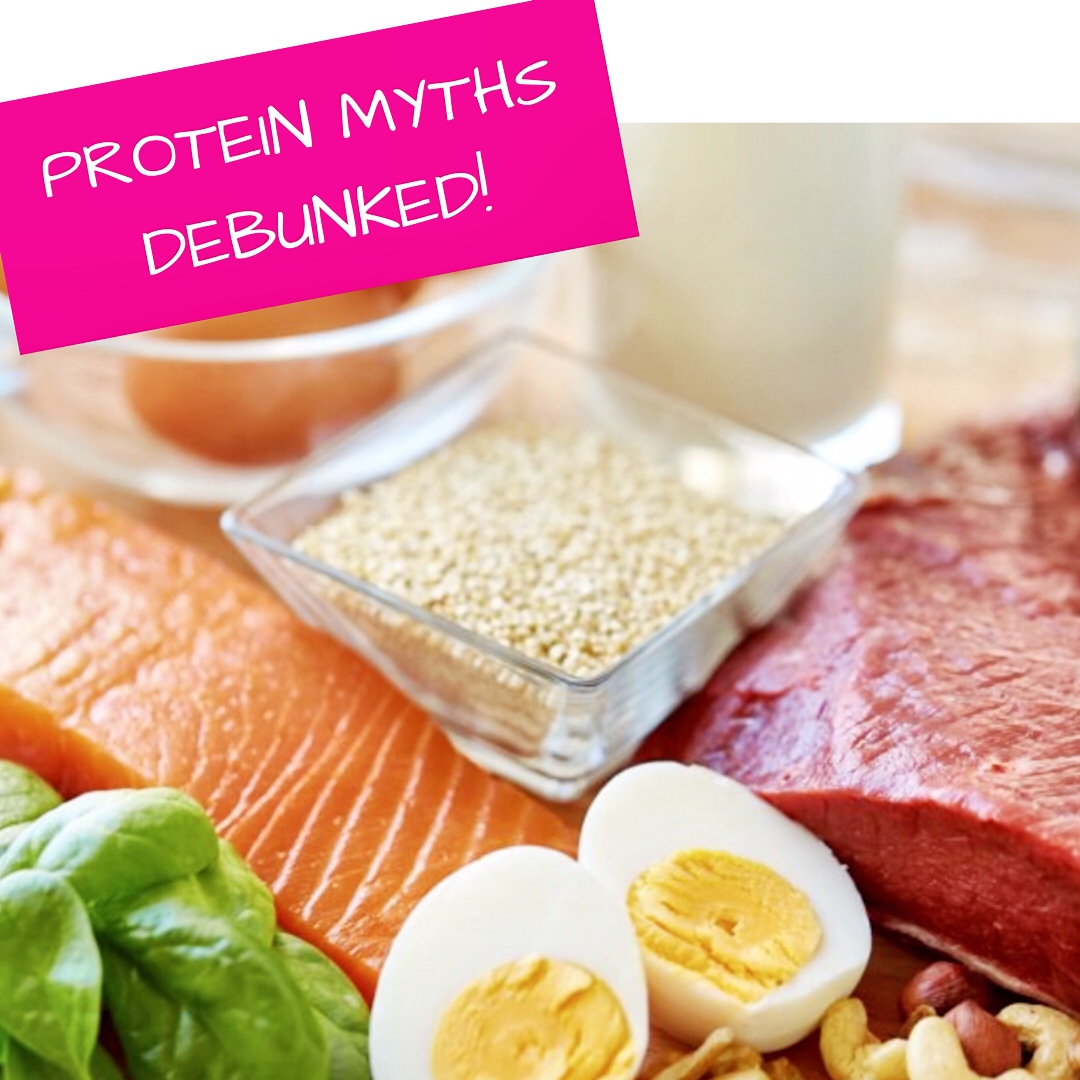Three BIG MYTHS about Protein!
Three BIG MYTHS about Protein
Emily R. Pappas, M.S.
Let’s talk protein!
If you want to gain more muscle , you’ve probably gotten a TON of “advice” from gym goers.
Most of it revolves around one thing: Protein.
The problem is, there is a LOT of misinformation about the role protein plays in the diet of the female athlete.
Do these Gym Bro Myths sound familiar?
“More Protein = More Muscle Mass!”
“You Can’t Get Too Much Protein”
“Protein Shakes are THE BEST Post-Workout Option”
Whether your goal is weight loss or gaining muscle mass, chugging another protein shake seems to be the go-to quick fix.
Well ladies, it’s time to do some Bro Myth Busting when it comes to protein.
In this post, I’m going to break down
why following the advice of these myths could actually be taking your further away from your goals
and how to refocus your nutritional mindset to achieve YOUR best performance level
Myth #1: More Protein = More Muscle Mass!
Yes, protein IS a building block for muscle mass.
But unless you’re supplementing your protein intake with trips to the weight room, you aren’t going to be using all of the extra protein you’re taking in.
Your body does use the amino acids in protein to repair and boost muscle, but ONLY after you’ve been stimulating your body to WANT to use it!
(SIDE NOTE: This is why we LOVE getting our athletes in the weight room.
Afraid that leaving the elliptical will bulk you up? Check out these strength training myths and learn why picking up the dumbells is ACTUALLY the secret to the lean look you’re after!
Protein isn’t a magic fix that automatically converts to muscle. The key is pairing your protein with the appropriate ENERGY to help put it into place! You need the right level of protein, balanced with other key macros, at the right times in our training regimen.
Which brings us to….
Myth #2: You CAN’T Get Too Much Protein!
Listen.
You can pile as many bricks next to a wall as you like, but those bricks won’t become a wall unless you use ENERGY to build it.
If you eat MORE protein, your body cannot use it to build your muscles without the appropriate FUEL to help put those building blocks into place!
Your body uses protein primarily as a BUILDING BLOCK.
Eating more building blocks without the stimulus to put muscle on (aka weightlifting) and without the ENERGY SOURCE to help put those bricks not place will not help you build muscle!!!
Instead, more protein is just giving your body MORE inefficient energy for your body. Your body DOES NOT want to use protein as energy compared to carbs and fats!!
Breaking down protein is HARD…. BUT eating too much means your body is going to
Use it as energy (much less efficiently than if it used carbs or fats!)
Store it as fat
One thing it isn’t doing? It’s NOT turning it into muscle mass if your body isn’t stimulated to PUT IT ON or if your body isn’t fueled with the appropriate ENERGY SOURCE to help put those bricks not place!
Eating MORE PROTEIN for the sake of trying to add muscle is just a waste of your energy consumption.
But how do you know if you are eating too much or not enough??
Every BODY is different.
Your nutrition needs aren’t going to be the same as someone who isn’t in your sport, who doesn’t have your body type, or who is on a different training schedule. If you lift weights, your body is going to need a bit more protein to help rebuild! If you are solely an endurance runner, protein is key to maintain your current muscle mass…BUT the amount you need will be different than a soccer player who lifts with her team!
This is why we recommend ALWAYS pairing your training schedule with a nutrition plan tailored to your body type and type/level of activity. As your body changes, your needs change too!
Is your nutrition plan falling short? We’re here to help: let’s get on a call and talk about where you are and how to get you to the next level.
Myth #3: Protein Shakes Are ALWAYS THE BEST Post-Workout Option
Protein shakes are an easy choice post-workout, but is it really what your body needs?
When your body is desperate to recover from a hard training sessions, protein is the BUILDING BLOCK for recovery, while carbohydrates are the FUEL that help put those building blocks in place!
REMEMBER Carbohydrates are the preferred fuel for muscle recovery.
Recovery takes hours- and sometimes days- to complete. If you aren’t giving your body the energy it needs to recover…it can’t rebuild and adapt! There is no adaptation (or improvement) without recovery!!
We suggest using a mix of
Protein shakes and bars are okay if you’re away from the kitchen and need to recover on the go!
But pay CLOSE attention to the packaging. Sometimes it’s easier than you think to go wrong with a protein shake.
Many major brands are packed full of extra fats, and often MORE PROTEIN than carbs! Aka more building blocks than the FUEL to energize putting those blocks in place!
When it comes down to it, its always better to choose real food.
Your body needs a mix of macronutrients and micronutrients to recover and build. The best place to get those is on a real plate.
Doesn’t this look WAY more tasty than a protein shake anyway??
HOW MUCH Protein Should You Be Eating?
More protein is not always the answer.
But, if not more….then… HOW MUCH protein should you be eating?
It is important to keep a constant supply of protein in your bloodstream for recovery and growth.
For most female athletes, we recommend 4-6 meals a day each including 2-4oz of protein (considering your body size, muscle mass, fat mass, activity levels)
On average this is about 1g of protein per lb of body mass!
This amount of protein is pretty easy to consume without additional supplements, bars, or shakes. Here are some of our athlete’s favorite sources of lean protein sources easily absorbed by the body:
Chicken breast
Turkey Breast
Any Fish
Lean Beefs (90% or more)
We also like sources with more fats and carbs:
Egg
Milk (Fat Free to 2%)
Yogurt
Cheese
Any Beef (less than 90%)
BUT remember these sources aren’t completely lean. Make sure you or your nutrition coach is considering the amount of carbs and fat in these sources.
How Does Protein Fit In To Peak Performance?
Protein is a building block for muscle mass.
In simplistic terms: the more active muscle you have, the higher your metabolic rate.
But what does that mean?
With more muscle and strength, you can do more “work” in any given task. Doing more work requires more energy.
As you build muscle, your body will need more energy to sustain its new power output and accompanying physique.
All of this leads to one thing: If you want to improve your performance and body composition, you MUST give your body the nutrition it needs to sustain + build during the right time.
This can be a lot to keep track of! Between school and scholarships, training and our social life, most athletes don’t have the luxury to dive into the professional level of nutritional education they need to reach their goals.
That’s ok. At Relentless Athletics, we specialize in helping female athletes become their best by helping them eat- and train- for their sport year round.





